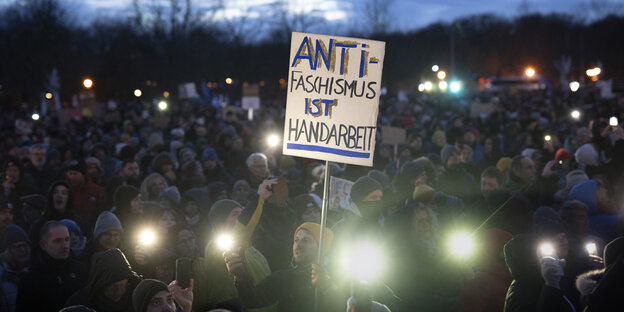The threat of right-wing extremism, hate and unrest is real. However, concrete measures often fail due to legal and political obstacles.

The change of the streets: protests against the far right in Berlin on January 21 Photo: Stefan Bones
Nancy Faeser wants to keep up with the street. Hundreds of thousands of people are protesting against right-wing extremism there and now the Federal Minister of the Interior is presenting another package of measures. There is not much new, but the signal is correct: the pressure against right-wing extremism must remain high and must be exerted at all levels. Because the threat is still great, despite all the protests. Right-wing extremism has long become a threat to society.
The radicalization of the AfD is advancing inexorably, the party is spreading in parliaments and municipalities across the country and its diatribes are also caught in the middle. The latest “secret meeting” in Potsdam is an example: Networking between the AfD and other right-wing extremists has long been part of everyday life, and yet there were also members of the CDU.
Far-right hate also continues to flourish on the Internet. Right-wing extremists were able to join or lead the “peace protests” or the coronavirus, and a family doctor or a lawyer also participated in the Reichsbürger coup plans. And new rightists like the identitarians continue to expand their networks. So Faeser and security authorities have work to do. But when it comes to concrete implementation, there often isn't much left of the announcements.
There are major legal obstacles in relation to planned entry bans or investigation of the location's financial sources. The FDP has been blocking the gun law and the democracy promotion law for months. But now is the time to ask more than just the liberals when they want to act, if not now. At best, Faeser's service can prompt authorities to do exactly that.
A stricter approach towards the AfD is also essential; banning at least the blatantly radical young people from the party should not be a taboo. As long as there are so many problems with implementation, it is even more important that civil society pressure remains high. Because in the end it is not a presented plan that decides, but a concrete action.